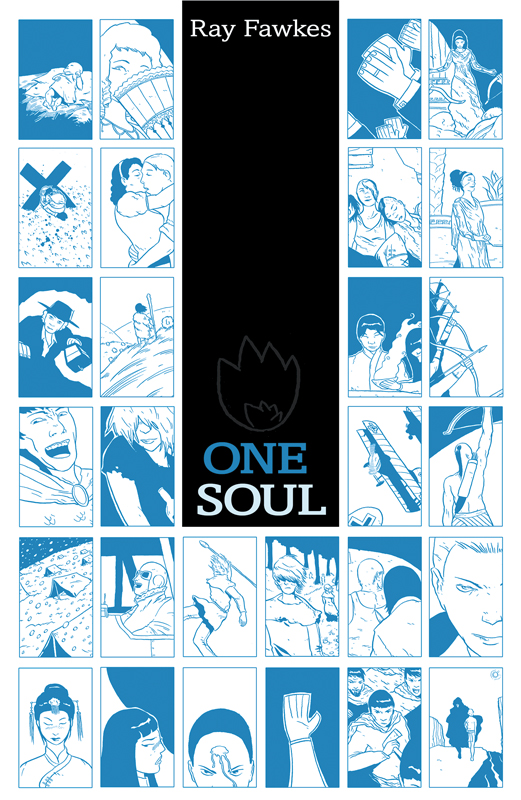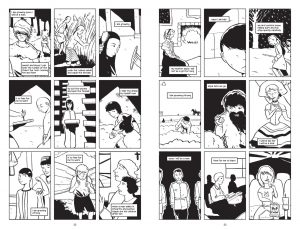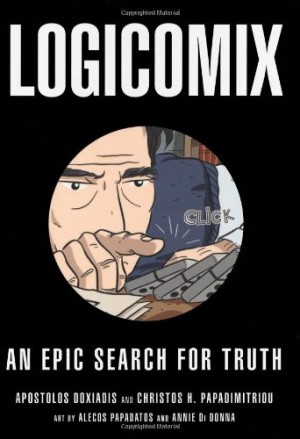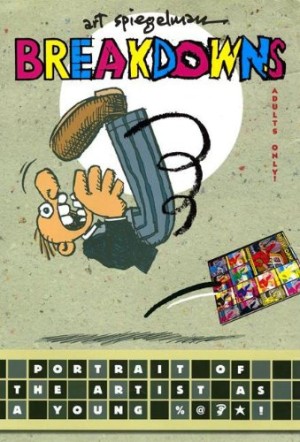Review by Frank Plowright
Spoilers in review
It takes a while to catch on to what Ray Fawkes is doing within One Soul, unless, of course a helpful reviewer points it out. Those who prefer to unravel their own discoveries should read no further than this paragraph, knowing that Fawkes toys with the accepted narrative structure of comics in impressive fashion, in an experimental manner not seen since Jason Shiga’s Meanwhile. The writing is accomplished, if spartan and the cartooning equally so, and the ambition towering. Furthermore One Soul is possibly unique among graphic novels in that it can be read once, then re-read in a different fashion providing a completely different experience. This is both remarkable and commendable. On the other hand, there’s a case to be made that this is mere gimmickry.
The first surprise is that this is an Oni Press product as the large size hardback format is so at odds with their normal, and equally acceptable, pocket size pulp paper product. That format, though, is essential to the requirements of Fawkes’ story. He adheres to a strict nine panel grid per page, extended to 18 panels over a spread by virtue of his narrative requirement. The experiment is this: each panel on a spread continues a single story from birth to death, so incidents from 18 life stories through the ages and differing strands of society are simultaneously related. Having made this discovery the reader can choose to follow single lives, then return to others, while those with greater retention can absorb the entirety.
The advantage of the latter method is that Fawkes has chosen his words very carefully. The caption for one panel may be contradicted or contrasted by its successor, building a tapestry feeding into a central theme of universal experience. Constructing the timeline, ensuring the details of each story remained near contemporaneous, building toward shared experience or suffering, and the overlapping narratives involved an immense amount of work. Does the wonder, however, survive stripping away the construction? The title is a statement, and Fawkes infuses his work with great sympathy and humanity, but read separately none of the stories are particularly remarkable and characterisation is subordinate to the structure. Furthermore, not all lives are of equal length, and having rigidly adhered to his chosen format, in the latter stages of the book Fawkes struggles. Leaving too many blank panels would create dead space, but the universal voice occupying them is bland and contrived.
Anyone with the foresight, talent and dedication to produce One Soul is surely destined to produce great work, but despite widespread praise Ray Fawkes isn’t quite there yet.





